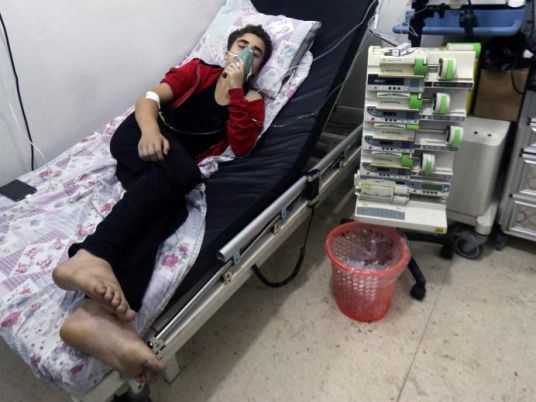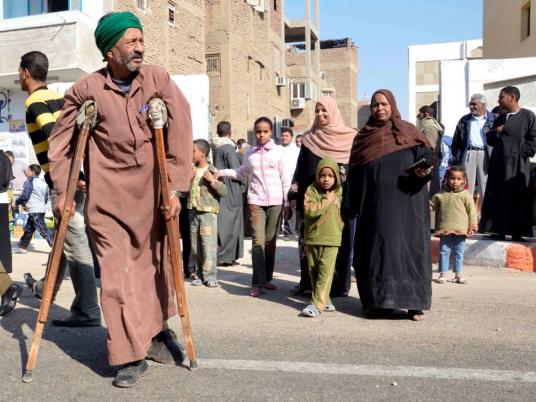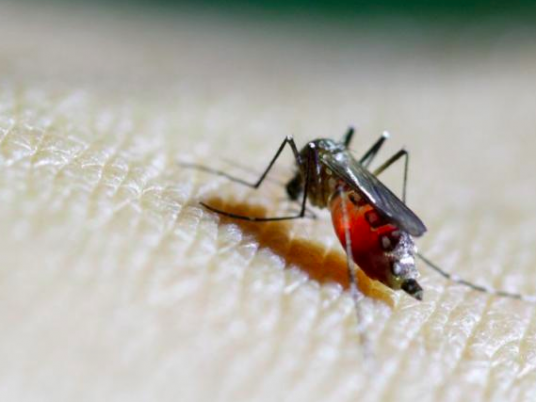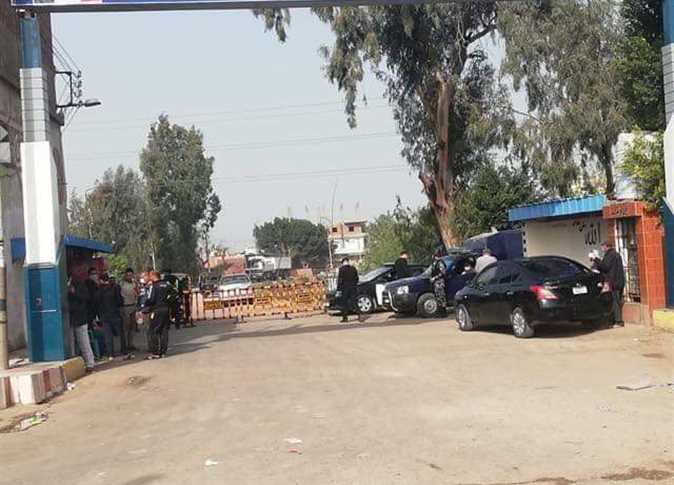Egyptian activists of all political stripes announced on Monday the establishment of a special committee to campaign against what they perceive as the state’s complicity in rising violence against Egypt’s Christian minority.
“Egypt has recently witnessed an unprecedented escalation of sectarian violence against peaceful citizens based on their Christian identity,” says the newly formed National Committee for Combating Sectarian Violence (NCCSV) in its first public statement.
Fourteen rights groups, 16 public figures, and an unregistered leftist political party have signed the NCCSV’s founding document.
In the statement, the NCCSV condemns “state officials for remaining silent about [recent sectarian clashes],” which amounts to “bestowing a kind of endorsement and support” for perpetrators of sectarian violence, according to the group.
“In sectarian-related incidents, security forces have always absconded from the crime scenes, thus allowing burning and looting of properties owned by Egyptian Christians,” the statement says.
The statement also blames the judicial authorities for failing to reduce sectarian tension in the country where Christians comprise nearly eight percent of Egypt’s 80 million people.
“Not a single perpetrator has been admitted to courts,” the statement says.
On Saturday, an appeals court in Upper Egypt released 14 people who were detained on charges of “rioting and breaking the public order” following attacks on Christian-owned shops on 21 November in the Upper Egyptian village of Farshout in Qena Governorate.
Riots reportedly erupted after a Christian man was held on suspicion of raping a 12-year-old Muslim girl, a highly charged crime in conservative Upper Egyptian society.
Activists, however, say that individual Muslim-Christian squabbles involving romantic and business affairs have a propensity to turn into large-scale clashes.
“The Farshout incident clearly shows how an individual dispute between Muslims and Christians could bring a disaster to the Coptic community,” said Marian Fadel, a rights activist and a coordinator with the advocacy group Egyptians against Religious Discrimination.
Fadel added that local security forces and Islamic scholars contribute to the atmosphere of religious hatred.
“The state’s religious and security apparatus fell short of protecting Christians, and sometimes the police resort to forcibly relocating Christian families from their Muslim-dominated villages under the pretext that it is protecting them,” Fadel explained.
Bishop Kirollus of Naga’ Hamady told a Coptic website last month that religious students affiliated to one of Al-Azhar’s institutes in Farshout took part in attacks on Christian shops.
Security and religious authorities, however, fervently deny that attacks on Egyptian Christians are systematic, arguing instead that they have been personally motivated.
“A fact finding mission must be established to determine who must be held accountable for sectarian-related crimes,” said Fadel.
In November, an Egyptian court sentenced two Christian men to death for killing the Muslim husband of a female relative who converted to Islam against her family’s wishes.
In 2004, the Court of Cassation sentenced four Muslims to up to 13 years in prison following large-scale attacks on Christian homes in January 2000 in the southern village of Kosheh, Sohag. Twenty Christians and one Muslim were killed in the clashes.




